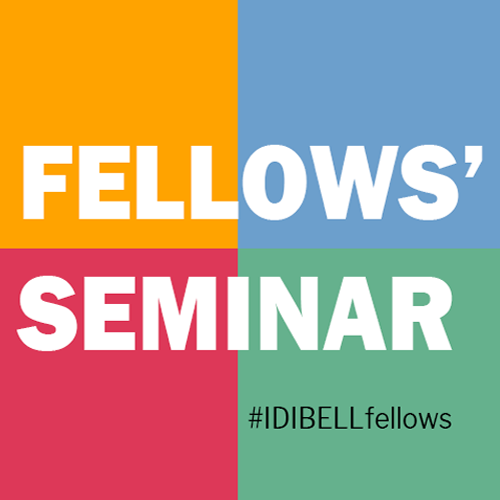
#IDIBELLfellows: Laia Solé / Martín Jiménez
Laia Solé Castilla, Martín Jiménez Arriola
Stem Cell Aging group; Pancreatic Cancer group
08/04/2025
15:00-16:00
McClintock room
Resumen
Exploring the role of CDK8 in Young and Aged Hematopoietic Stem Cells: Expression, Kinase Activity, and Epigenetic Regulation
 Laia Solé Castilla – Stem Cell Aging
Laia Solé Castilla – Stem Cell Aging
Upon aging Hematopoietic Stem Cells (HSCs) undergo an epigenetic remodeling that is associated with the loss of their regenerative capacity. These epigenetic alterations represent potential pharmacological targets to improve the activity of old stem cells.
We have seen an upregulation of CDK8 expression in aged HSCs compared to young. CDK8 is a protein working as a negative regulator of the Mediator complex. It regulates the activity of super-enhancers (SEs) in different cells and can affect chromatin accessibility.
In this project we aim to test whether CDK8 expression/activity/compartmentation is changed in aged HSCs and whether it influences HSC function and regenerative capacity. And we also investigate why CDK8 is critical for SEs in HSCs and how SEs affect stem cell stemness/differentiation program.
Interferon signaling activation of the Pancreatic Ductal Adenocarcinoma Stroma
 Martín Jiménez Arriola – Pancreatic Cancer group
Martín Jiménez Arriola – Pancreatic Cancer group
Pancreatic ductal adenocarcinoma (PDAC) is a cancer of unmet need with bleak overall 5-year survival rates around 13%. The rising incidence in diagnosis and the failure in response to current chemotherapy options has set PDAC to become the second leading cause of cancer related death in 2030. The tumor mass has a disproportionately high amount of tumor microenvironment (TME) which can account for up to 90% of the tissue. TME is mainly composed by cancer associated fibroblasts (CAFs), a highly heterogenous cell population. Previous studies in our lab showed that PDAC patients with tumors showing an activated interferon signaling status (IFNsignhigh) exhibited poorer outcomes. In this work we aim to study the importance of the crosstalk between CAFs, specially CAFs expressing high levels of IFNsign (IFNsignhigh CAFs), and the other components of the tumor. We combine a collection of several patient derived CAFs with RNA sequencing and different in vitro cell culture studies to elucidate the influence of IFNsignhigh CAFs in two main hypotheses that trigger PDAC aggressiveness. On the one hand, the role of IFNsignhigh CAFs in the induction of tumor initiation capacity to PDAC epithelial cells and, on the other hand, the influence of IFNsignhigh CAFs in the immune suppression of the PDAC TME.
Biografía
